Ford could be seen as giving mixed signals about its dedication to fully electric vehicles in the next decade.
On one hand, it’s definitely invested. Ford was among just a few automakers to side with California and 22 other states to oppose federal efforts to quash the Golden State’s right to set its own emissions rules. And it’s frequently trumpeted its investment of more than $11 billion on 40 electrified vehicles—including 16 EVs—to arrive globally by 2022.
On the other hand, it recently canceled its upcoming Lincoln-brand product co-developed with Rivian. Its 2021 Mustang Mach-E, about the size of the Tesla Model Y, is a testament to the enthusiasm in the company’s ranks but at least in its first full year of production it’s limited to 50,000 vehicles, which is less than the number of Tesla Model 3 sedans delivered in 2019. And it’s been hard to pin the company down on actual battery-electric vehicle sales volume goals through the decade.
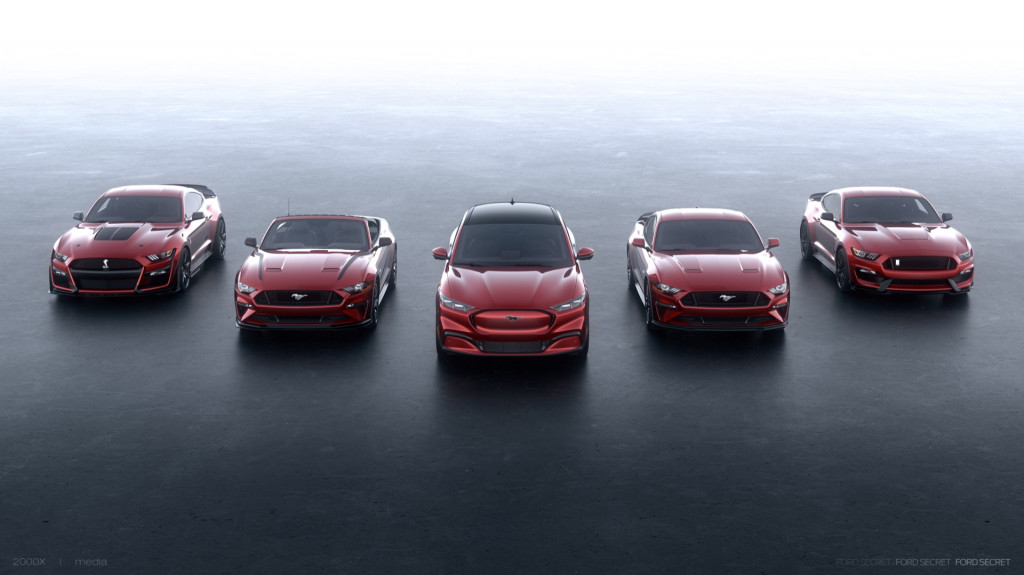
2021 Ford Mustang Mach-E
In a Q&A on Wednesday, Ford’s global director of electrification, Mark Kaufman, addressed some of these concerns and gave what might be the closest outward insight to the company’s EV targets.
“You can imagine we’re having a lot of those conversations internally to say any time you’re looking at an S-curve or an early adoption curve for technology; trying to get that slope of the curve right gets to be very challenging,” Kaufman said about EV adoption.
Normal analytic approaches don’t help, he said, as there really is no historical data to draw from, and so it’s modeling in various ways.
The bottom line: Ford is now expecting that by 2030 up to a third of all vehicles sold globally could be EVs.
That’s close to what Bloomberg New Energy Finance forecasts in their Electric Vehicle Outlook 2020 report, released last week. Globally, it sees 28% of passenger vehicles electric in 2030, versus 2.7% in 2020. The U.S. market will climb from less than 2% in 2020 up to about 26%
“A lot of the different CO2 demands from around the world are going to drive us that way,” Kaufman said. “Ford's perspective is in order to meet that demand, you've got to really come up with a compelling reason for the customers to buy—so exciting products, great capability, new functionality that you can't quite get with a conventionally powered vehicle for us are all ways that we can help manage that transition to the end of the decade.”
And that’s why Ford doesn’t see the success of its EVs like Mach-E as being tethered to the price of gas, he said.
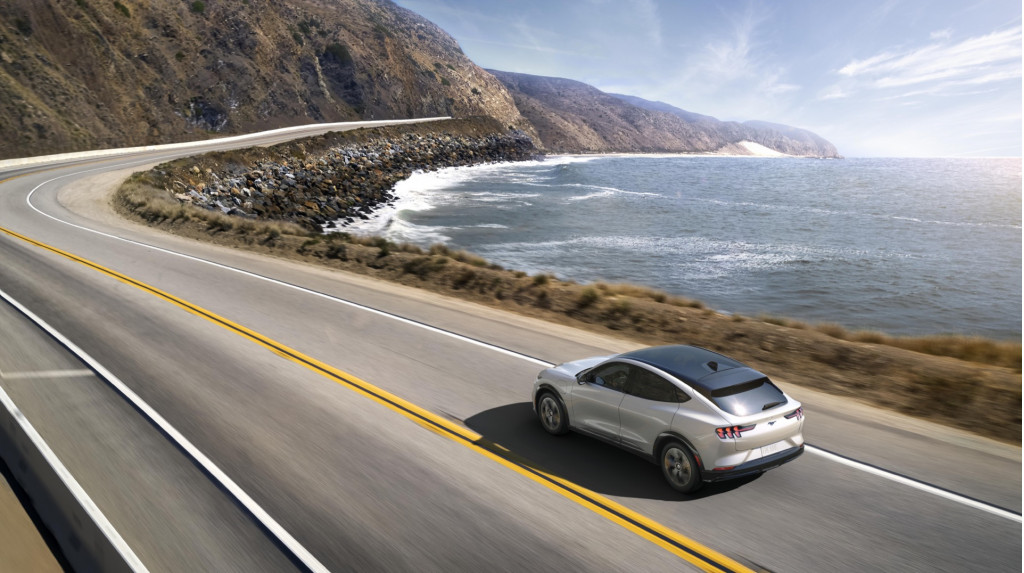
2021 Ford Mustang Mach-E
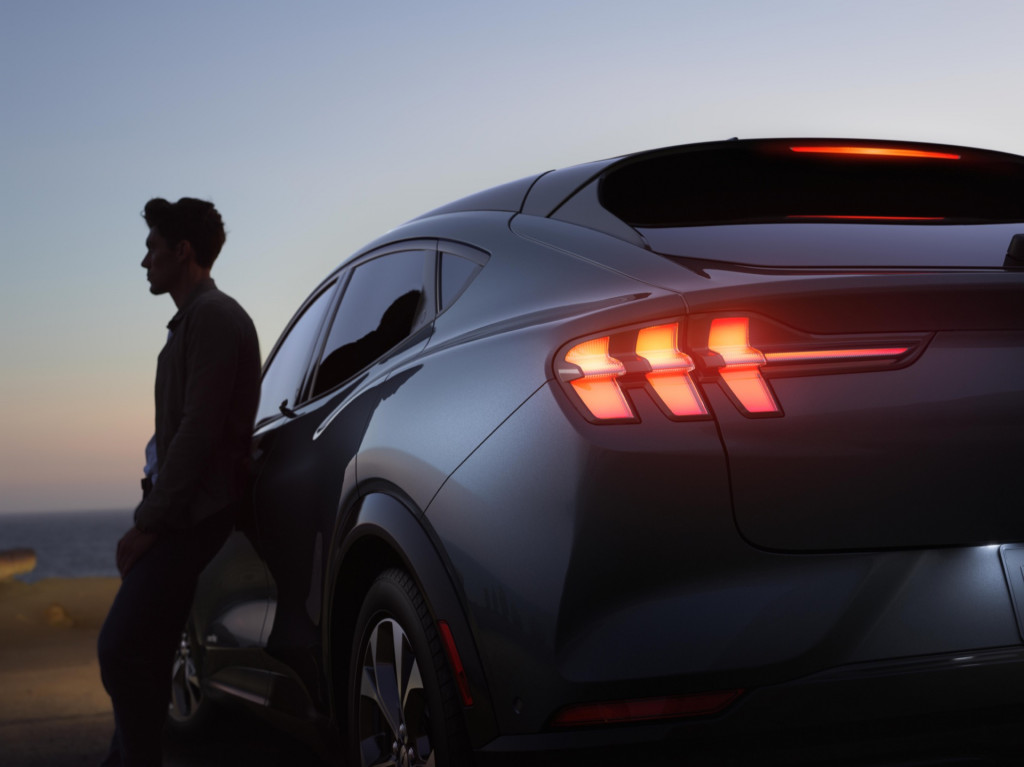
2021 Ford Mustang Mach-E
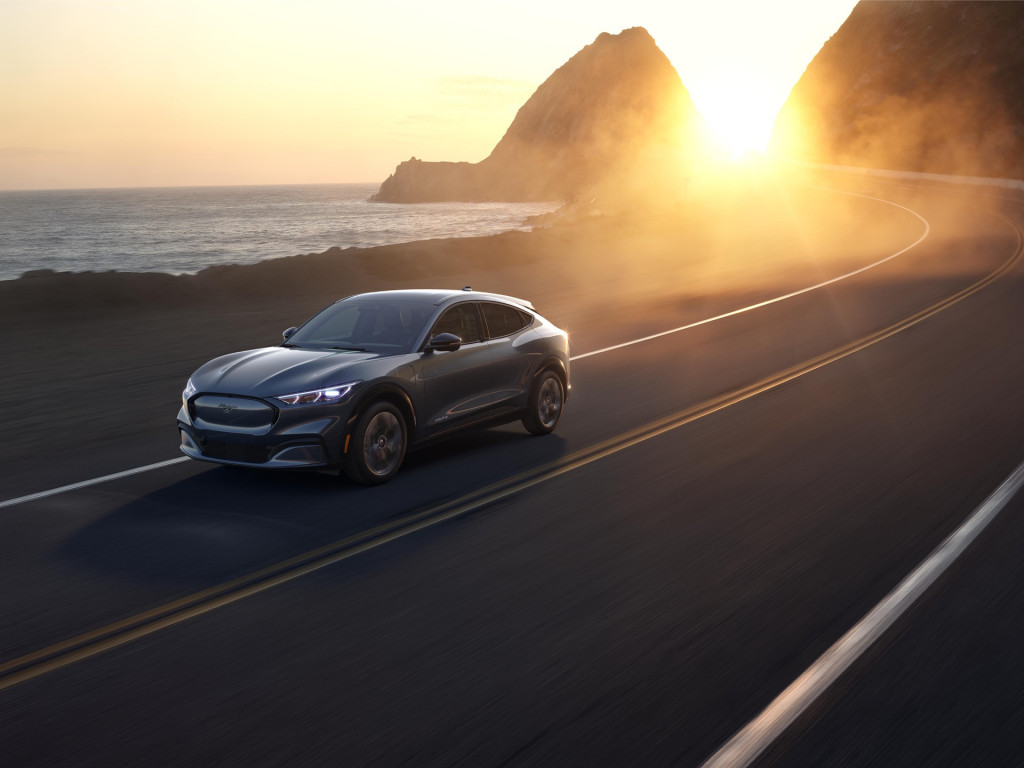
2021 Ford Mustang Mach-E
“We think...people are buying them because they're great products first and maybe that cost of ownership on some products, like the commercial van, might be a little bit more of a consideration,” he said. “If you were only relying on cost of ownership as your main reason for purchase, this (very low gas prices) could be quite disruptive.”
Generally speaking, gas prices and EV sales have been detached. While an extreme upward spike of gas prices might boost electric-car sales, there’s little or no precedent to show that a sudden drop in gas prices—like earlier this year—will cause sales of EVs to fall.
A lasting economic downturn is a greater concern, and so far reports are split on whether we’ll recover with electric-car sales gaining or losing ground in market share. In April, the market research firm Wood Mackenzie was one of a minority predicting that EVs could lose ground this year globally.
That hasn’t rattled crosstown rival General Motors, which has kept its “all-electric future” talking points at center, and amid the pandemic it’s walked the walk by cutting spending and delaying some ICE projects while fast-tracking its EVs.
GM has said that with its next-generation EVs it plans to start small next year but ramp up to one million annual EV sales, split mostly between the U.S. and China in 2025. It hopes that the trend continues upward for the rest of the decade, which would reduce the costs to make vehicles at a scale larger than just a minor market niche.
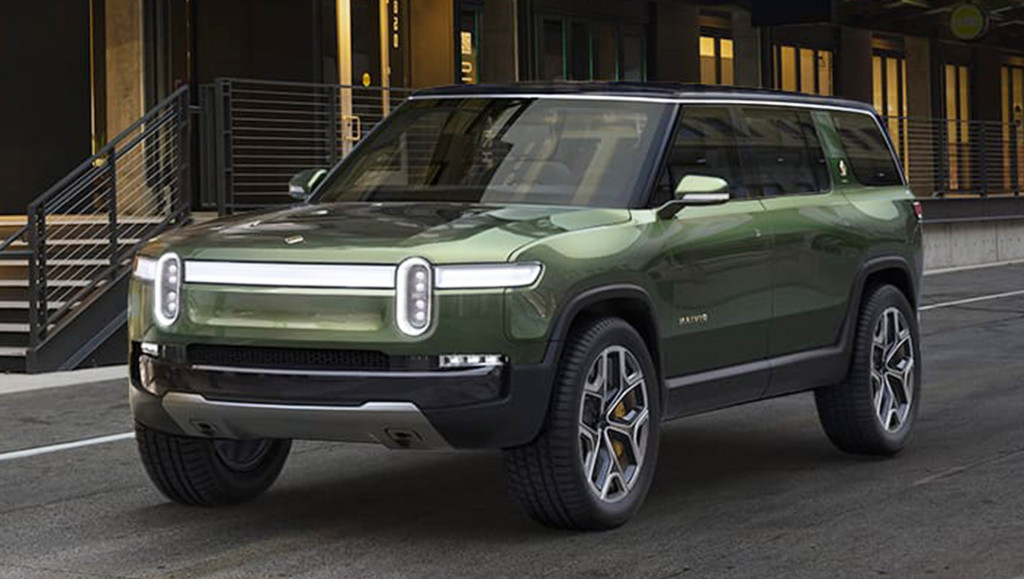
Rivian R1S
And at Ford, the Rivian project remains alive, Kaufman said. He said that the team realized “that some of that innovation and joint sharing might be better served on a different product strategy.”
Somewhere between the electric F-150 and the Mach-E there’s an all-electric answer. Likely several.
